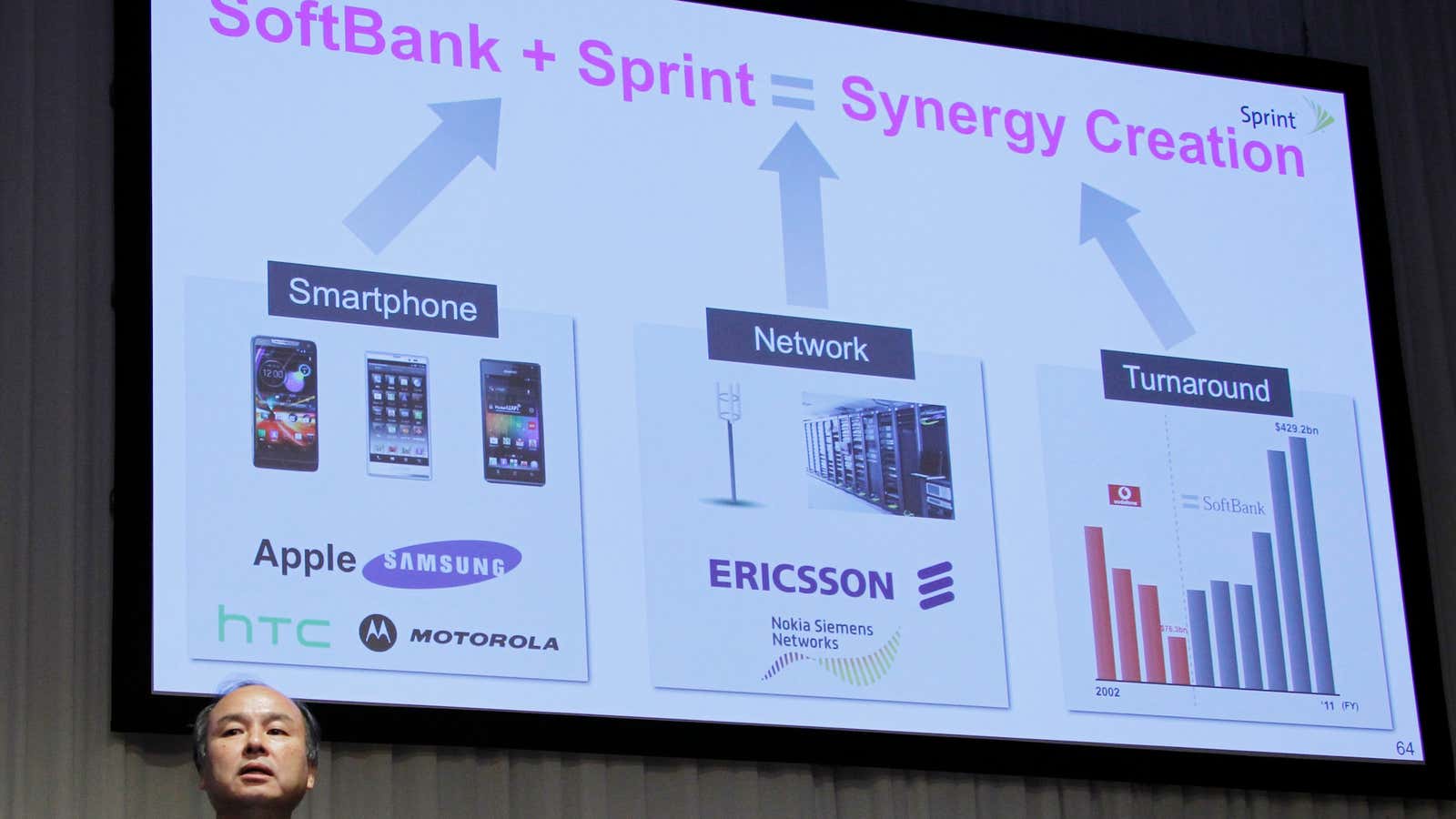In takeover wars for a company, it’s normal for the fighting to get a little dirty. But Dish Network’s latest accusations against Japan’s Softbank—both of which are vying to buy Sprint, the US’s number-three mobile carrier—are a bit ridiculous.
On a new web site, nationalsecuritymatters.com, Dish basically says the acquisition of Sprint by a non-US company would lead to Chinese spying, hacking, and general mayhem that would be a threat to US security. In an interview with USA Today, Dish chairman Charlie Ergen said the modernization of Sprint’s network needs to be done with US employees who speak English, namely Dish. On the site, Dish also argues that Softbank uses Chinese telecom equipment makers for its wireless network in Japan. As a result, Sprint’s network could also become dependent on Chinese mobile-phone makers.
There is no doubt that Chinese telecom firms like Huawei and ZTE raise alarm bells in the US; an acquisition by Softbank requires clearance from the government’s Committee on Foreign Investment in the US (CFIUS), which examines sensitive foreign deals. But Softbank and Sprint have already agreed not to use equipment from Huawei and ZTE. Softbank has also offered to pay $1 billion to remove the Huawei equipment already used by Clearwire, the US wireless company that Sprint is trying to fully acquire. Dish, by contrast, which doesn’t require CFIUS approval, has not said what it would do with Clearwire’s Huawei equipment.
Dish also criticizes Softbank’s roughly 30% stake in the Alibaba Group, China’s largest e-commerce firm, which Dish says supported censorship by the Chinese government. But Dish omits to mention that until a year ago, US internet company Yahoo was an even bigger shareholder in Alibaba. Yahoo now owns about 20%.
Sources close to Dish said that its views on Softbank are not about being anti-foreign, and CFIUS should take the issues it has raised seriously. For example, Sprint has a lot of sensitive contracts with the US government, while Softbank was involved in a company accused of bribing Chinese officials for government contacts.
But CFIUS was already moving forward with its review without raising any major concerns before Dish launched its bid in April, six months after the Softbank-Sprint deal was announced. Trying to stir up objections now feels like a desperate act. The US Federal Communications Commission also looks like it’s on track to approve the Sprint-Softbank tieup, though Dish asked the FCC to suspend its review. Dish would also have to get FCC approval for its deal.
If CFIUS and the FCC give the green light to Softbank, it will be up to Sprint investors to decide which offer they prefer, and the main things they will care about is deal certainty and price. Softbank is offering $20.1 billion for a 70% stake in Sprint, while Dish’s offer was valued at around $25.5 billion for the whole company.
